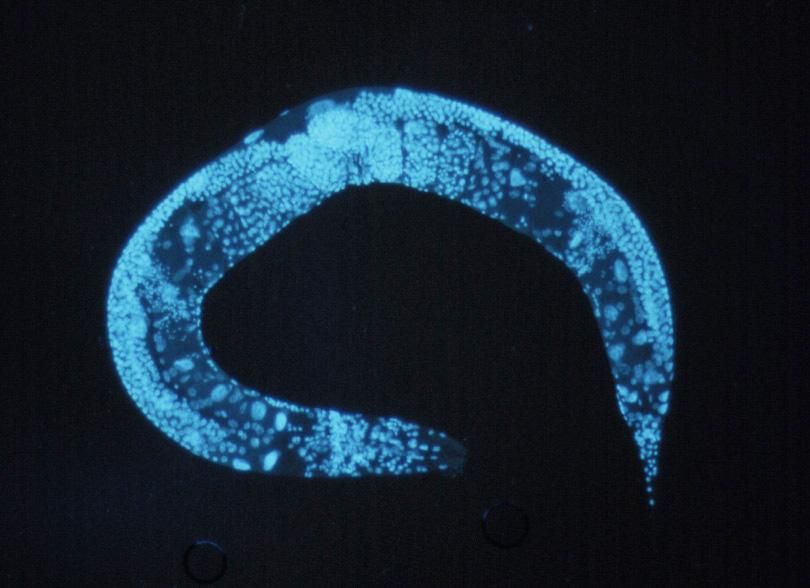Researchers from the Korea Advanced Institute of Science and Technology (KAIST) have been able to boost the lifespan of a roundworm by altering proteins that monitor energy usage in its cells. This experiment was done on roundworm Caenorhabditis elegans (C. elegans), a millimeter-long nematode commonly used in lab testing but these proteins are present in humans as well.
There are two proteins namely VRK-1 and AMPK that were considered in this research. VRK-1 regulates AMPK whereas AMPK regulates the energy status of the cell.
A team of researchers led by Professor Seung-Jae V. Lee from the Department of Biological Sciences at KAIST used many different biological research tools, including introducing foreign genes into the worm and they were able to dial-up and down the activity of the gene that tells cells to produce the VRK-1 protein.
Lead author of the study Sangsoon Park then confirmed that increasing the production of VRK-1 gave a boost in the lifespan and inhibiting its production decreased the lifespan of ringworm which normally lives 2-3 weeks.
The team also found that the activity of the VRK-1-to-AMPK cellular-energy monitoring process is increased in when cell has low energy by reduced mitochondrial respiration, the set of metabolic chemical reactions that make use of the oxygen the worm breathes to convert macronutrients from food into the energy “currency” that cells spend to do everything they need to do.
Researchers used the same methods on human cells to check whether it works or not. Impressively, they found that the same thing can be replicated in human cells as well. This leaves us with a possibility that increasing VRK-1 in our cells will give a boost in our age as well.
Though it is not yet confirmed whether VRK-1 can boost our age or not, it is a pretty good direction. If that gets confirmed we can start developing anti-aging drugs which would alter the activity of VRK-1
But before metabolic disorder therapeutics or longevity drugs can be contemplated by scientists, further research still needs to be carried out to better understand how VRK-1 works to activate AMPK, as well as figure out the precise mechanics of how AMPK controls cellular energy.
Journal Reference:
Sangsoon Park, Murat Artan, Seung Hyun Han, Hae-Eun H. Park, Yoonji Jung, Ara B. Hwang, Won Sik Shin, Kyong-Tai Kim, Seung-Jae V. Lee. VRK-1 extends life span by activation of AMPK via phosphorylation. Science Advances, 2020; 6 (27): eaaw7824 DOI: 10.1126/sciadv.aaw7824

